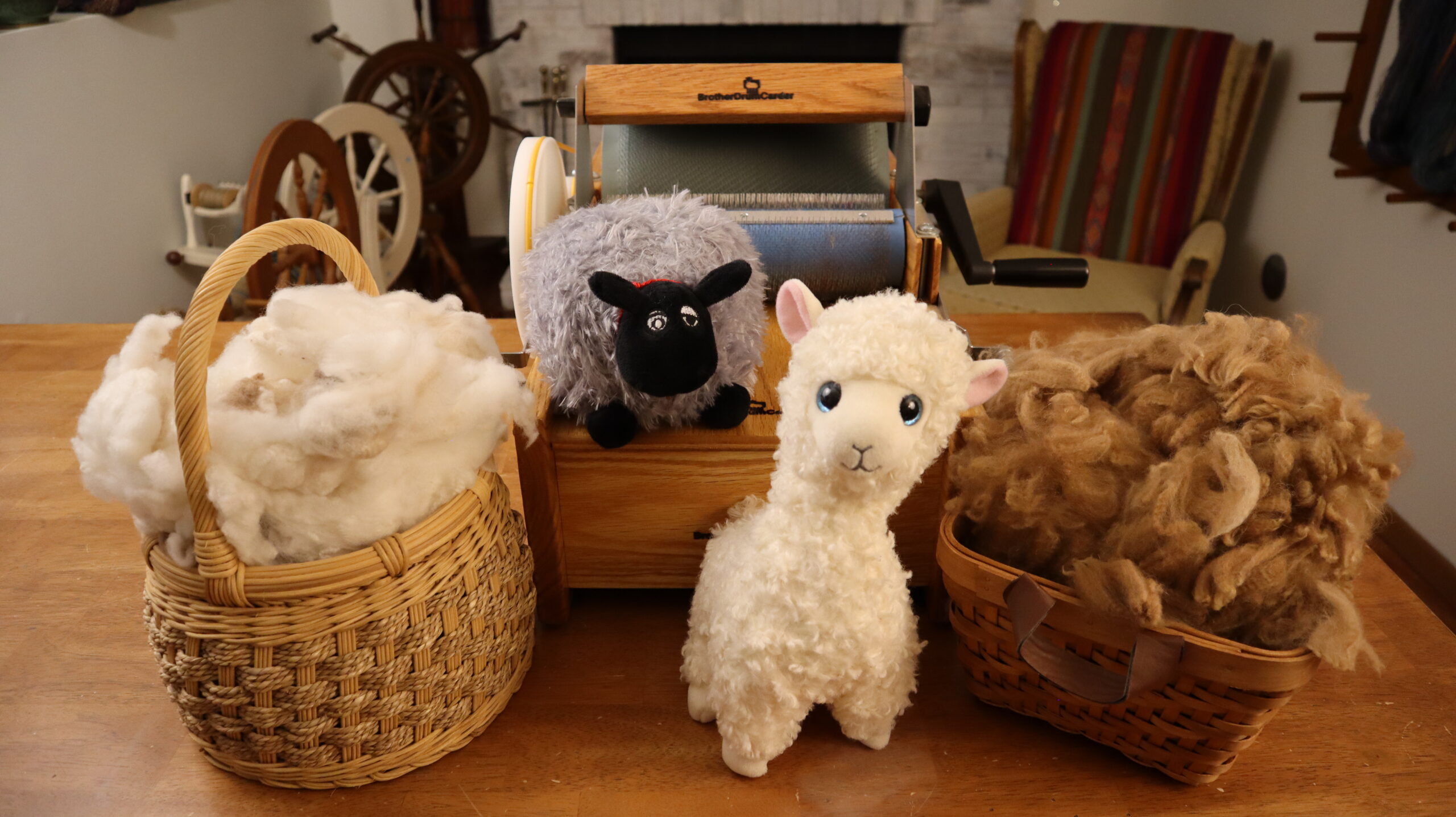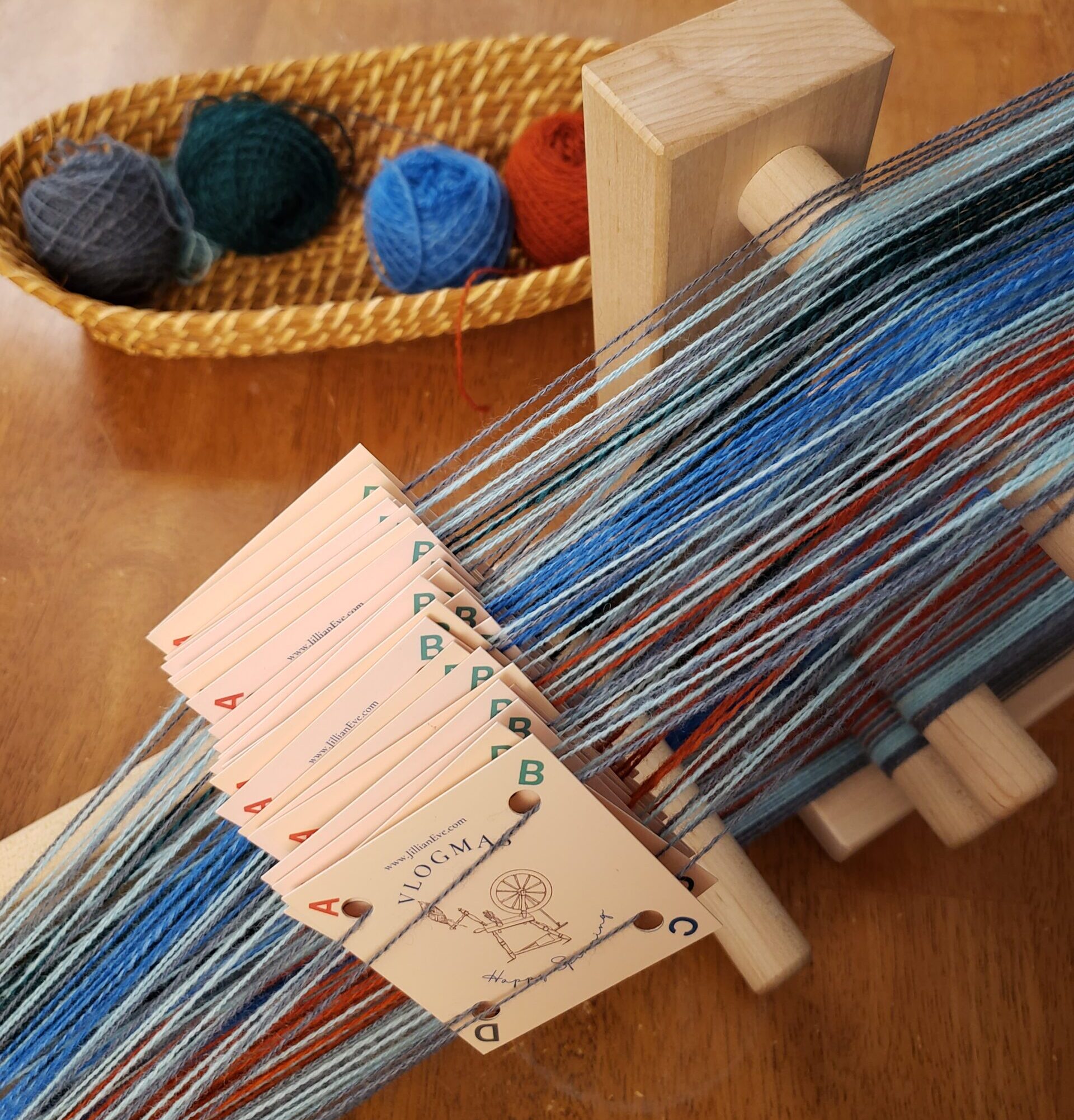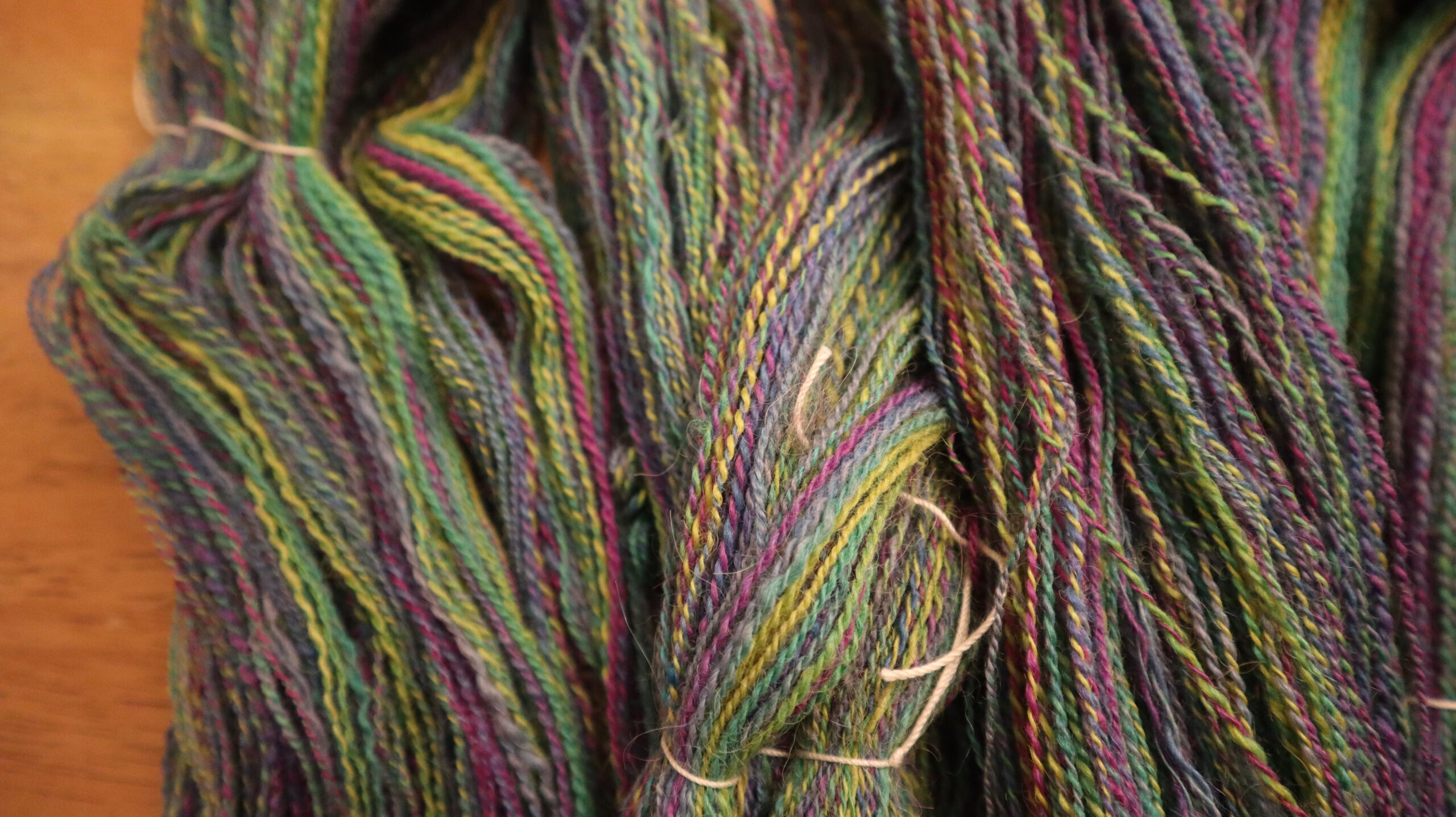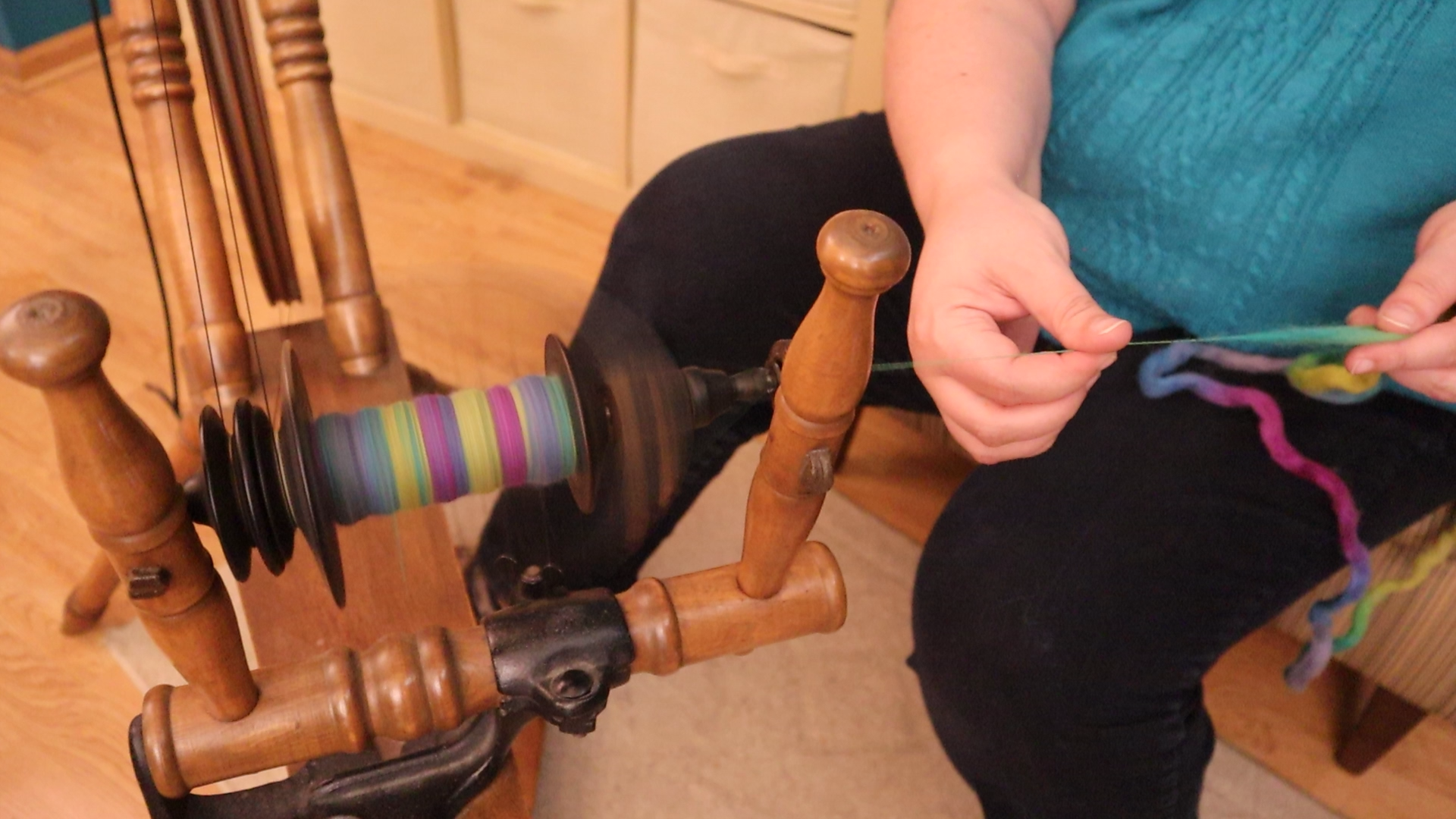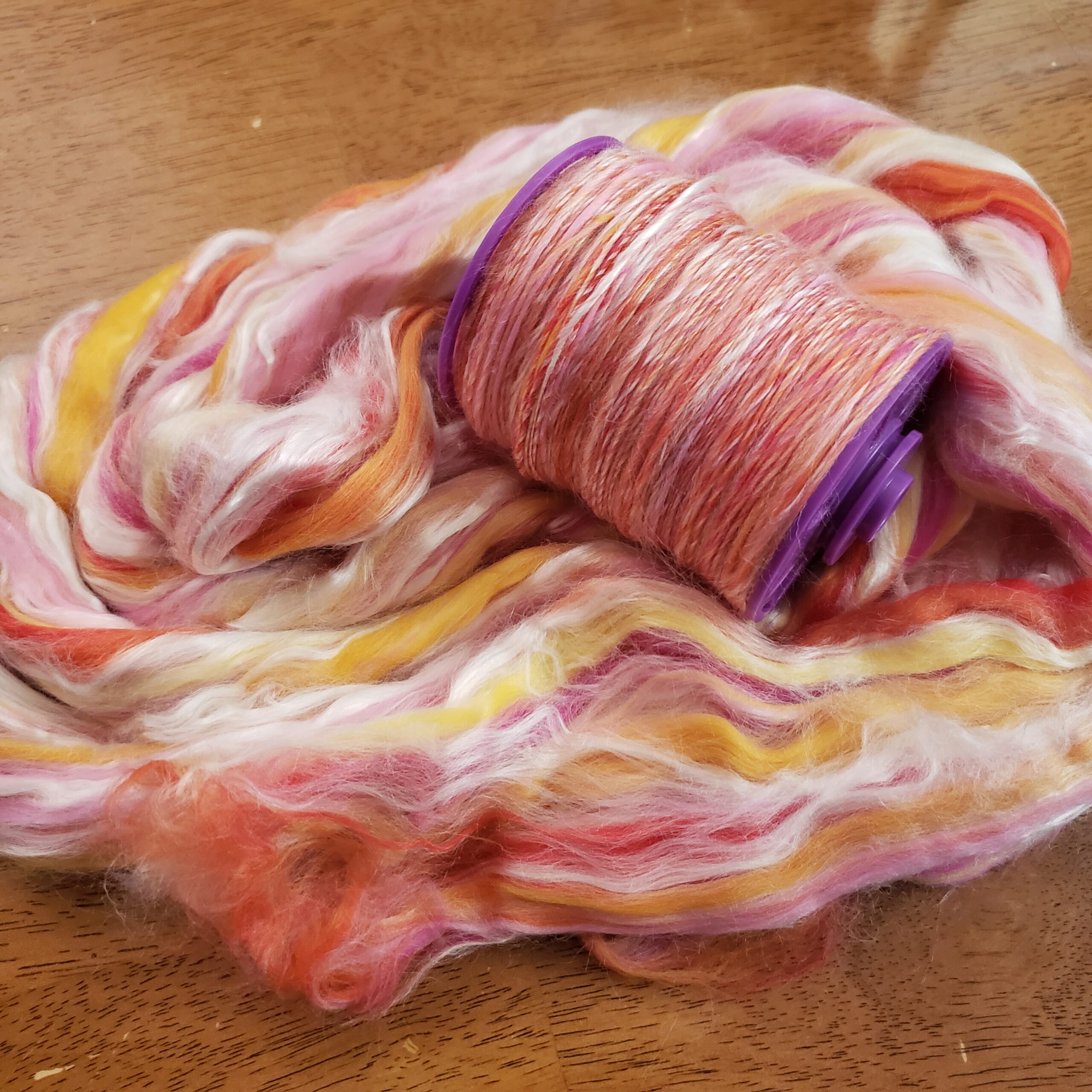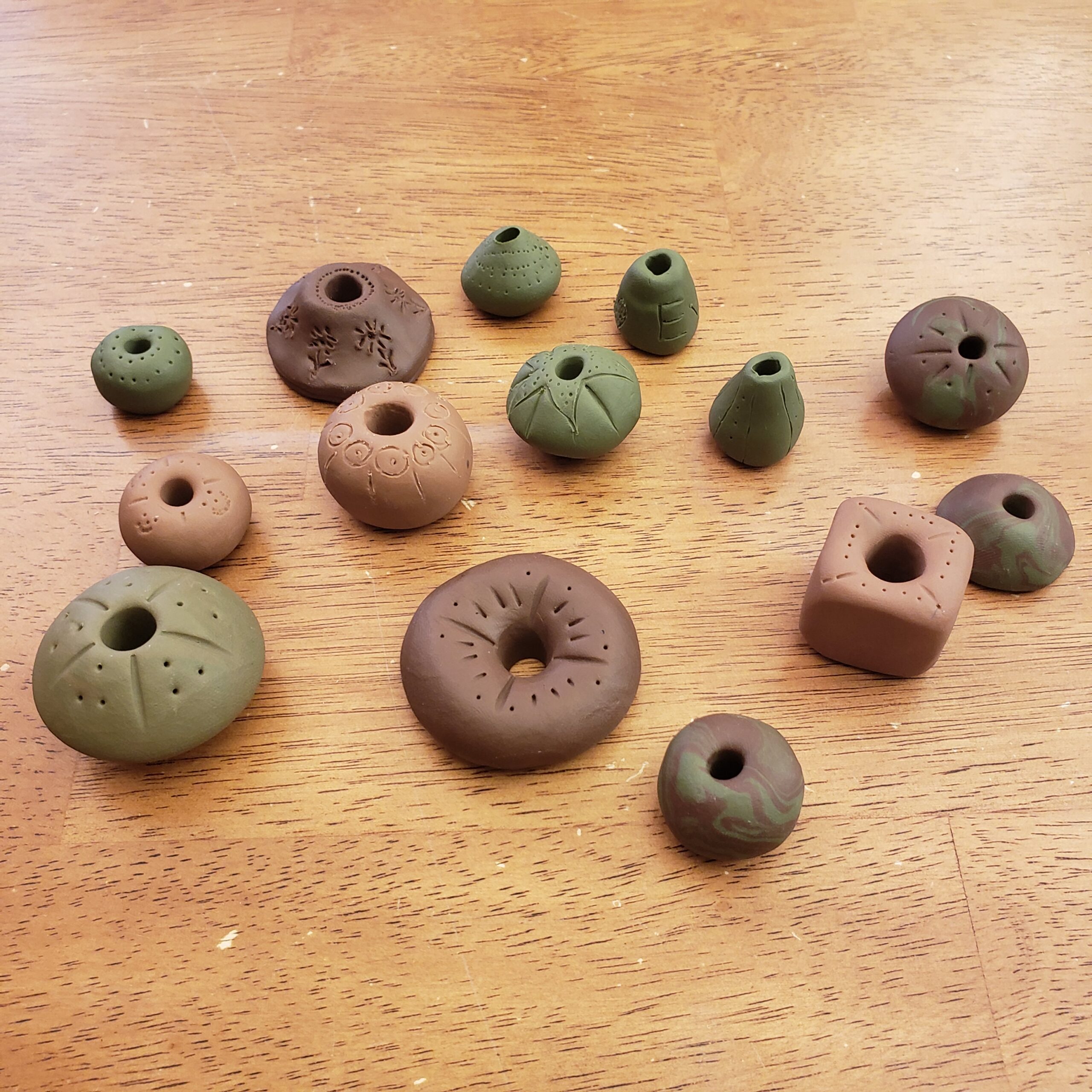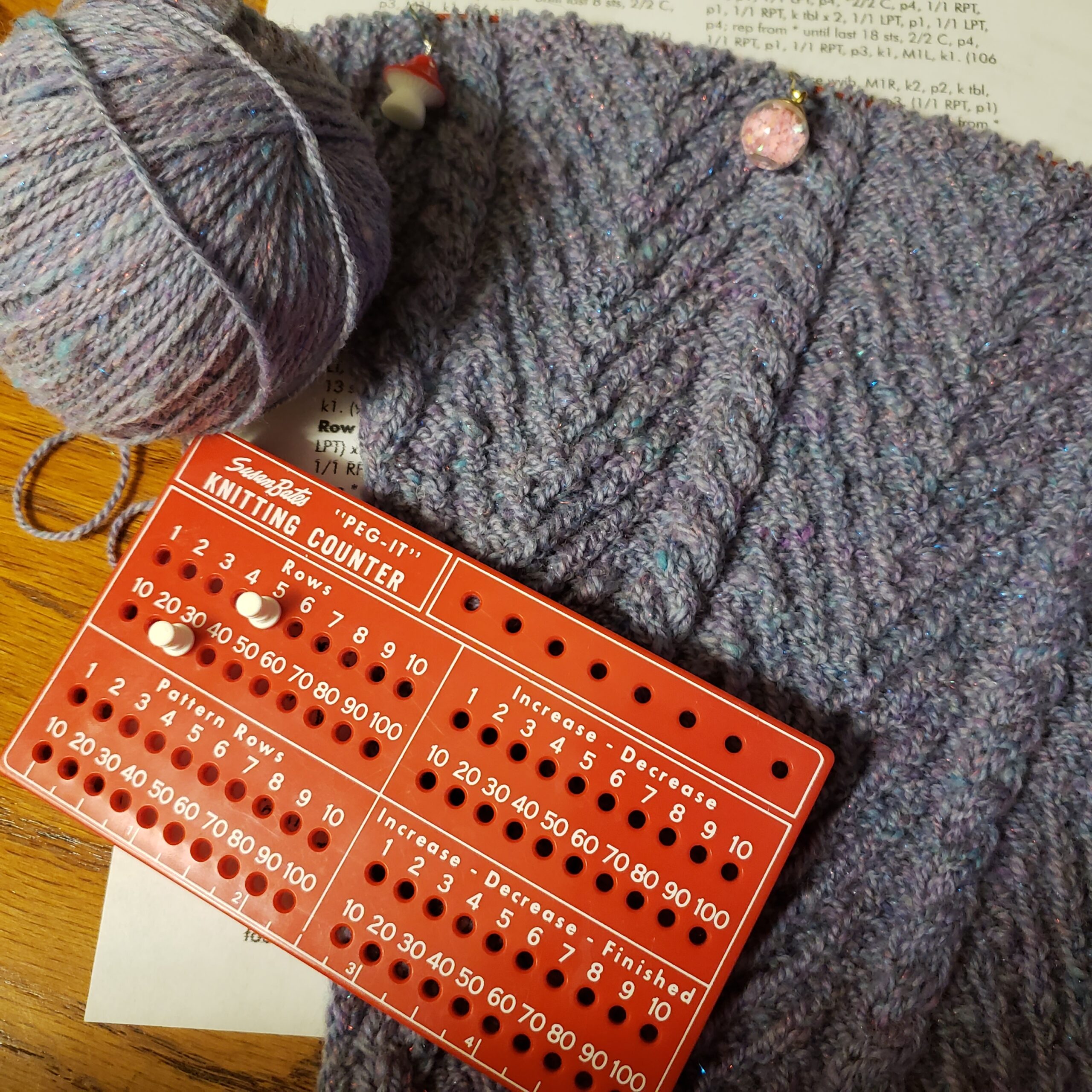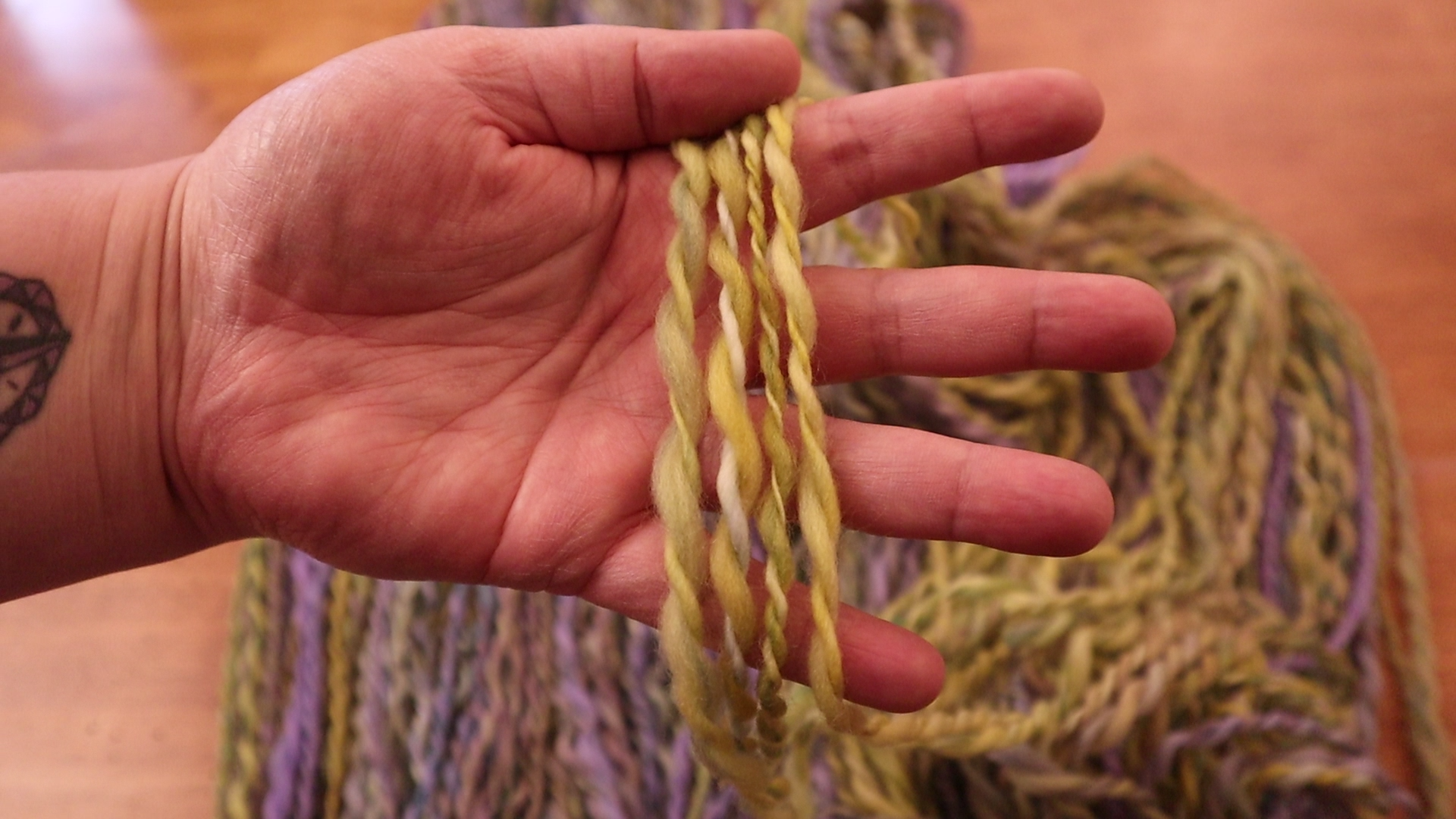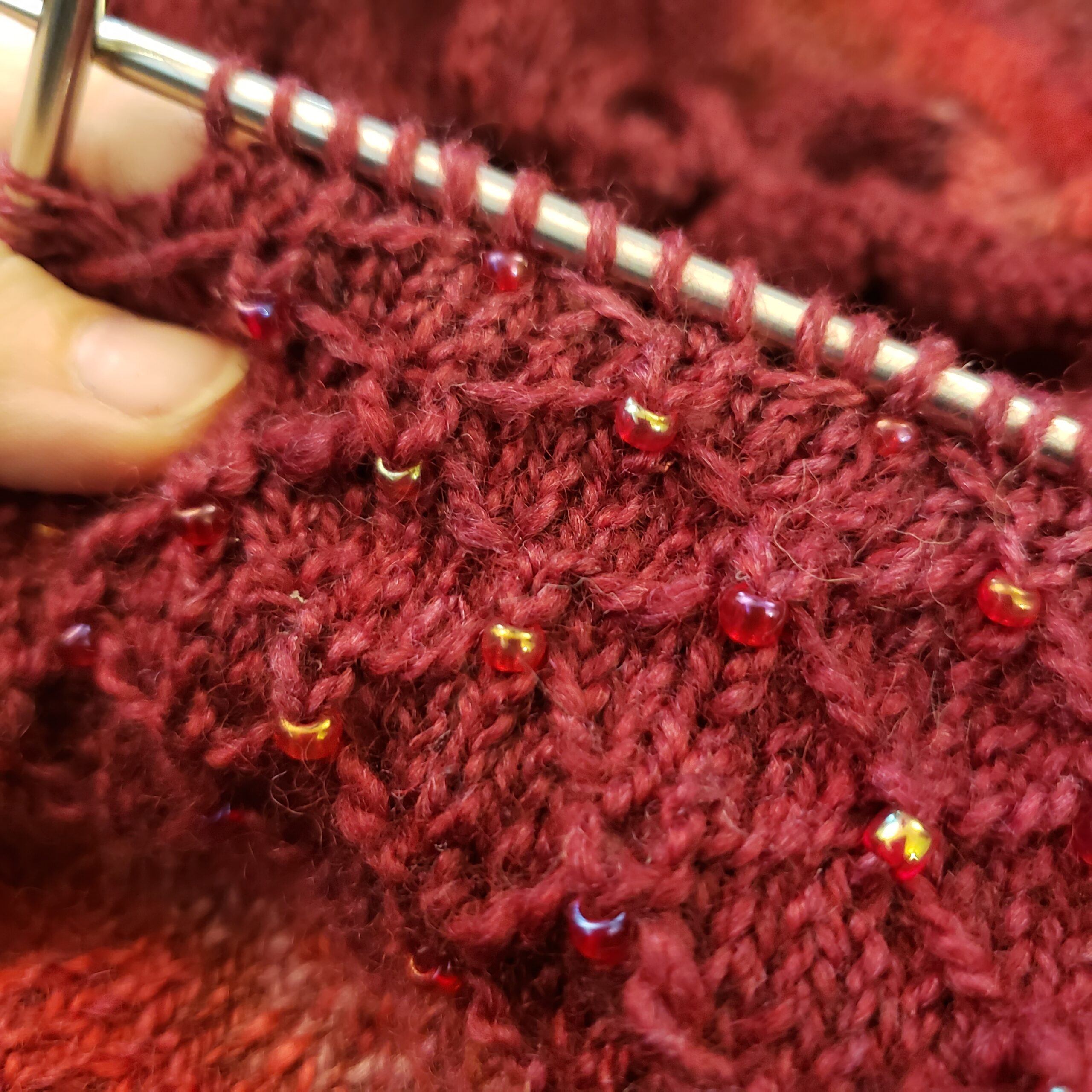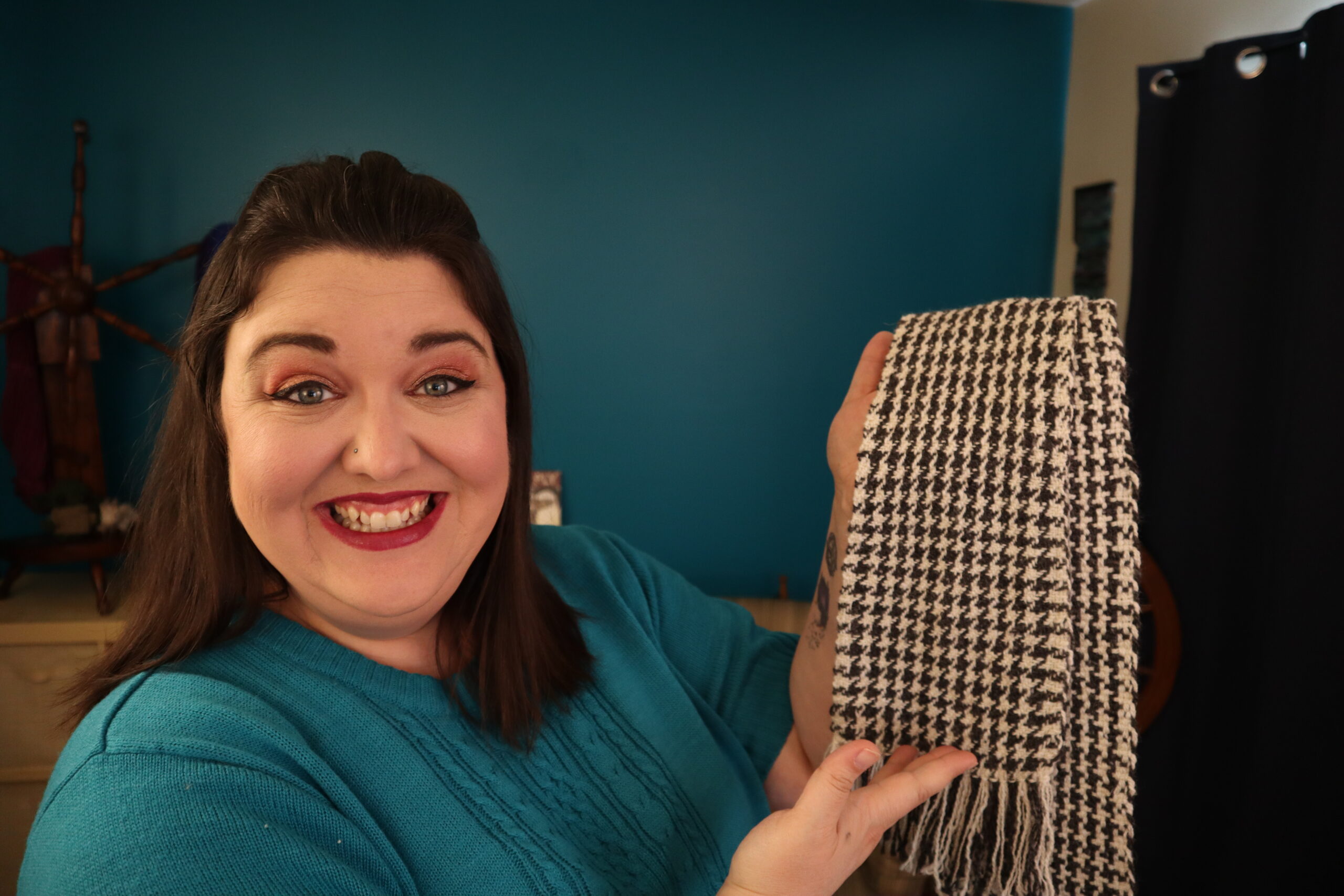I've heard people say that blending alpaca and wool is essential to having an alpaca yarn that will keep its shape in a garment. But is it truth or myth that alpaca must be blended with wool? I wanted to test some alpaca wool blends to see what the difference is for knitting. So, I did an experiment where I carded four batts using my Brother drum carder. Keep reading to see the results!Read More
Blog
Historical Textiles-
Spinning-
Wool-
Yarn
How to: Tablet Weaving with Handspun Yarn
Tablet weaving with handspun yarn can make an absolutely beautiful woolen, card woven band. Having a yarn that is intentionally spun for weaving can make all the difference in how well your pattern will show up, reducing the pilling and fuzzing that can happen with fluffier commercial yarns, and of course, custom dyeing can give you the color pallet you want for your project. Here's how I created a simple tablet woven band that I created with my hand-dyed and handspun yarn.Read More
Spinning-
Yarn
Should I Let My Bobbins Rest Before I Ply My Yarn?
Should I let my bobbins rest before plying my yarn? This is one of the most commonly asked questions in the spinning community! Some people swear by it, and others prefer to just charge ahead on their project.
Personally, I tend to go right ahead and ply my yarn without waiting. But I was really curious to see what difference letting the bobbins rest has on the final yarn. And I wondered about questions like: How do we know how much twist the ply needs if the energy is rested out of it? Does it make tangled yarn less likely?
Let's find out!Read More
Spinning-
Spinning History-
Spinning Wheels-
Wool
Canadian Production Wheel (CPW) — History, Spinning, and Long Draw
Have you ever wondered about the history of Canadian Production Wheels (CPWs)? Why were so many produced in Quebec during the late 1800s and early 1900s? I was inspired to do some research on CPWs after acquiring one myself.
The CPW is a beautiful historical spinning wheel and a real workhorse. I like to compare it to a draft horse and adoringly call my wheel Philippe after the draft horse in Beauty and the Beast.
Keep reading to learn all about the history, key features, and how to spin on a CPW.Read More
Spinning-
Tutorial-
Yarn
New Fiber Alert! How to Spin Yarn from Eco Nylon and Weave a Cute Notions Bag
When Paradise Fibers sent me their Eco Soul Nylon for spinning, I was so intrigued. And when you spin as much as I do, it is not every day that you find a totally new type of fiber that surprises you!
Nylon is known for its strength and durability, so I thought that a notions bag project would be perfect!
Keep reading to learn more about this cool new fiber and fun spinning challenge!Read More
Spinning-
Spinning History-
Tutorial-
Wool
How to Make DIY Spindle Whorls from Polymer Clay
Spindle whorls have been discovered in the most ancient of archeological sites and are still used today to hand spin yarn by yarn crafters, reenactors, and people working to preserve their cultural heritage and textile traditions, and by YouTubers (like me!). This was a super fun project where I learned how easy it is to make DIY spindle whorls out of polymer clay.Read More
Intentional Wardrobe-
Knitting-
Spinning-
Wool
Handspun Yarn for a Knitting Project and an Interview with Aroha Knits
When I saw photos of the cowl, I just knew it was a special piece. The Whiria Cowl was designed by the amazing Francoise, who is also the creator of Aroha Knits. I knew that I needed to dig deeper into the story behind this project, so I invited Francoise to chat with me about what this cowl means to her. Then I spun a specific yarn to knit this beautiful cowl.Read More
Spinning-
Spinning Wheels-
Tutorial-
Wool-
Yarn
Does plying from a center pull ball change your twist? — A yarn spinning experiment!
<!-- wp:paragraph -->
<p>Many fiber friends (myself included!) often ply their yarn with a center pull ball. This popular method works especially well if you only have one bobbin.</p>
<!-- /wp:paragraph -->
<!-- wp:paragraph -->
<p>You form your yarn into a center pull ball with a yarn winder, then take the end of your yarn from the inside and the end from the outside and give it twist. This creates a two-ply yarn. I've used this center pull ball plying technique a lot in my projects.</p>
<!-- /wp:paragraph -->
<!-- wp:paragraph -->
<p>But sometimes you'll hear people say, "Don't do that! It will mess up your twist!"</p>
<!-- /wp:paragraph -->Read More
Evie Gets Dressed-
Intentional Wardrobe-
Knitting-
Spinning-
Yarn
I Dyed Handspun Yarn to Knit a Tank Top — Plus How to Fix a Dye Pot Disaster!
This is a project where I spun the wool, dyed the yarn, knit a top, and added glass beads to it. A garment made entirely from scratch! It was a bit of a challenge and I definitely suffered from some mid-project doubt, but it was such a great learning experience and I absolutely love the way that it turned out!Read More
Historical Textiles-
Spinning-
Spinning History-
Yarn
I Replicated 2,300 Year Old Fabric: The Gerum Cloak
This project started with some wool…most of my projects start that way. But this project finished somewhere spectacular. It finished with the creation of woven cloth that replicates the pattern and structure of the Historic Gerum Cloak, which is housed at the Swedish History Museum in Stockholm, Sweden. I’ll get to weaving, but let’sRead More









